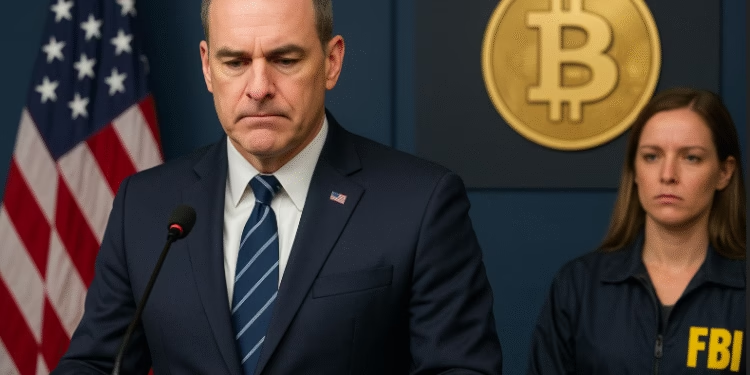The possibility of a US strategic bitcoin reserve has re-emerged as a major talking point in financial and crypto circles. Alex Thorn, head of firmwide research at Galaxy Digital, argued this week that markets are underestimating the likelihood of the United States formally establishing such a reserve before the end of 2025.
“I still think there’s a strong chance the US government will announce this year that it has formed the US strategic bitcoin reserve and is formally holding BTC as a strategic asset,” Thorn said in a post on X, formerly Twitter. “The market seems to be completely underpricing the likelihood of such an announcement.”
His comments come amid ongoing speculation about how Washington plans to integrate Bitcoin into broader fiscal and national security strategies. While former President Donald Trump signed an executive order in March establishing the groundwork for a US strategic bitcoin reserve and digital asset stockpile, a detailed implementation strategy has yet to be finalized.
Legislative signals and policy momentum
Recent moves in Congress indicate that discussions around a US strategic bitcoin reserve remain active. Lawmakers introduced a bill earlier this week directing the Treasury Department to conduct a feasibility study and technical assessment on how such a reserve might operate.
Meanwhile, officials close to the administration have maintained that the White House remains committed to the concept, despite only briefly referencing it in a recent crypto policy report. “Subsidizing crypto mining risks distorting energy markets, but strategic reserves are a different matter,” an International Monetary Fund spokesperson told Independent Urdu earlier this year.
Supporters argue that a US strategic bitcoin reserve could help safeguard economic resilience in an increasingly digital global economy, particularly as other nations accelerate their own crypto strategies.
Divided opinions on timing
Despite Thorn’s optimism, not all industry experts agree the plan will move forward this year. Dave Weisberger, former chairman of CoinRoutes, suggested that the government may delay any announcement until it has quietly accumulated enough Bitcoin to meet its initial targets.
“I’ve made the point many times that this administration is too smart to announce anything until after they accumulate to their initial target,” Weisberger said.
He predicted that the US strategic bitcoin reserve is more likely to be unveiled in 2026 rather than in 2025.
The uncertainty has left investors and policymakers debating whether Washington risks falling behind competitors in securing strategic exposure to digital assets.
International competition heating up
Global developments are adding pressure. In June, Jan3 founder Samson Mow warned that the US “has to start” acquiring Bitcoin this year to avoid being outpaced. “The risk is that the US is front-run by Pakistan,” Mow told Cointelegraph Magazine.
That warning is not hypothetical. Kyrgyzstan advanced legislation last week to establish its own state cryptocurrency reserve, while Indonesian advocacy group Bitcoin Indonesia confirmed ongoing discussions with government officials about how Bitcoin reserves could support economic growth.
With these developments, calls for a US strategic bitcoin reserve have grown louder, positioning the debate at the intersection of financial security, energy policy, and geopolitical competition.
Outlook
For crypto investors, the stakes are high. If the United States moves forward with a US strategic bitcoin reserve this year, it could represent one of the most significant milestones in Bitcoin’s integration into mainstream economic policy.
However, as skepticism from industry leaders shows, the timeline remains uncertain. What is clear is that the idea of a US strategic bitcoin reserve is no longer theoretical—it is an emerging policy question with both domestic and international consequences.











